The story behind the 'tragic' deaths of four workers
- Published
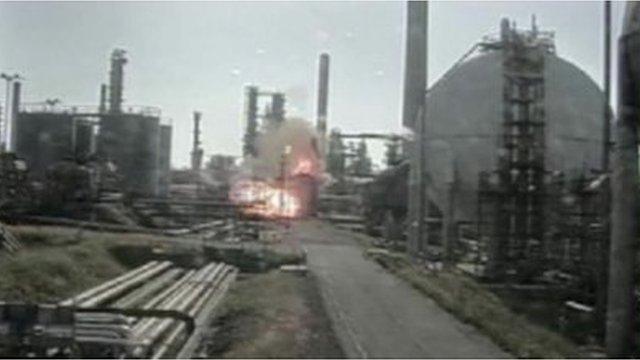
The moment of the blast which claimed four workers' lives
It should have been just another working day.
But on 2 June 2011, routine maintenance at Pembroke's former Chevron oil refinery turned to "tragedy" when gases sparked into a fireball that killed four people.
Dennis Riley, 52, Robert Broome, 48, Andrew Jenkins, 33, and Julie Jones, 54, were all employed by outside contractors.
They had checked onto the site to drain chemical sludge from an amine recovery unit.
This is used in the oil refining process.
But unknown to them, the tank had become a ticking time-bomb. Over the years it had filled with flammable gases. That began after a change to the refining process in 1998.
At Swansea Crown Court, Chevron were fined £5m, with specialist cleaners B&A Contracts fined £120,000. The oil company was also ordered to pay £1m in costs and the cleaning firm £40,000.
The court was told that an "unearthed" hosepipe used by the team was "overwhelmingly likely" to have ignited these gases with a static spark, causing "catastrophic" consequences.
At 18:19 - about 10 minutes into the job - the tank exploded, creating an inferno that engulfed the workers.
A fifth employee, Andrew Phillips, who was with the team, survived with life-changing burns.
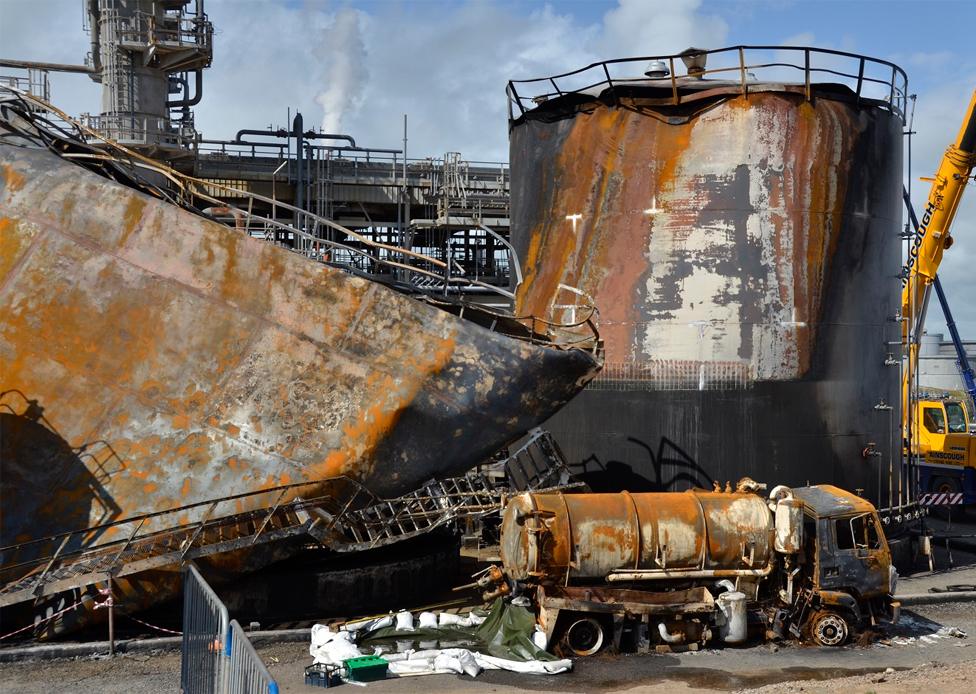
The five tonne roof was thrown 55m by the blast - this shows the damage from the explosion
The court heard how he had been stood slightly further back than his colleagues. Mr Phillips remembered being covered in flames as he ran for his life through the blaze.
The explosion also blew the roof 200ft off the tank. It narrowly missed penetrating other gas pipes and containers.
After almost eight years of investigations, oil giants Chevron and B&A Contracts, which employed Mr Riley, Mr Broome and Mr Jenkins, admitted health and safety breaches which resulted in the "tragic and preventable" deaths.
The Health and Safety Executive said a catalogue of "overlapping systemic failures" meant numerous opportunities to save the lives of the workers were missed.
The court heard that the fact the container would have had a "flammable atmosphere" was not widely understood by Chevron workers. The tank had some time earlier been wrongly classified as a "non-hazardous" environment.
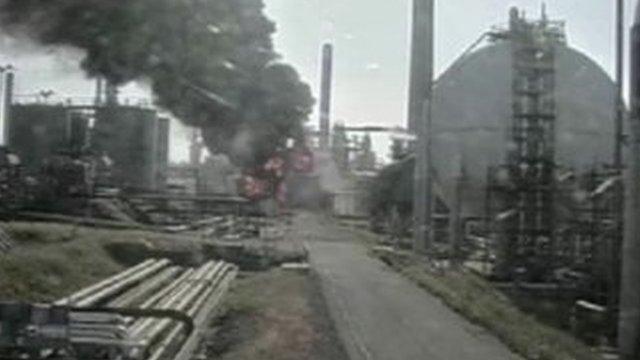
Thick black smoke billowed into the sky after the explosion
The court heard flammable gas levels in the tank had been checked before the explosion. But staff miscommunication resulted in warning signs being "lost" or "ignored."
They should have "stopped everyone dead in their tracks," the court heard. Readings showed the tank had a Lower Explosive Limit of 67%. A safe limit would be under 10%.
Judge Mr Justice Lewis said it was "astonishing" Chevron did not formally record such gas readings. An "accident waiting to happen" had been created.
The judge said no fine could "reflect the value of someone's life" but it was right that the companies were sentenced according to the law.
"The tragedy has had a devastating impact on the families of those who died and on Mr Phillips and his family," he said.
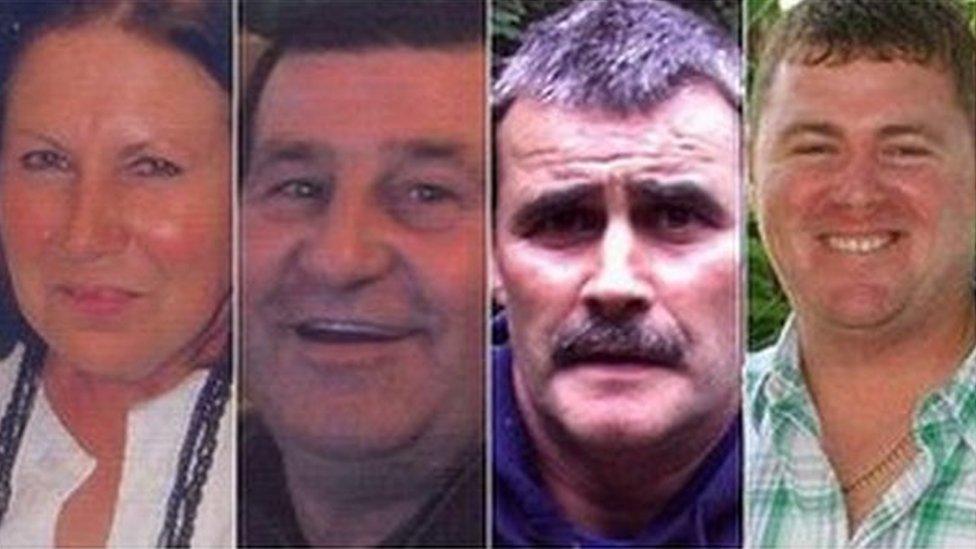
Julie Jones, Dennis Riley, Robert Broome and Andrew Jenkins died in the blast
The workers who died
The men who died were all from Milford Haven
Dennis Riley was a regular at the town's rugby club, where his son played. Robert Broome was a father of seven, while Andrew Jenkins, 33, was a father of twins
Julie Jones, 54, a fireguard, was a grandmother from Pembroke.

The judge added: "Nothing this court says or does can bring back the four people who lost their lives or minimise the suffering of Andrew Phillips.
Mr Justice Lewis said those working for Chevron at the time had failed to "know of or appreciate" the risk of "flammable vapour," which had apparently been building up inside the tank over a number of years.
The court heard that just days before the explosion one Chevron worker had carried out a gas test which should have alerted the refinery to the flammable atmosphere, but its results were either "not properly communicated" or "not understood."
"If the work had have been stopped (at this point) the explosion would not have happened. The four deaths and the injuries would not have happened," said Mr Justice Lewis.
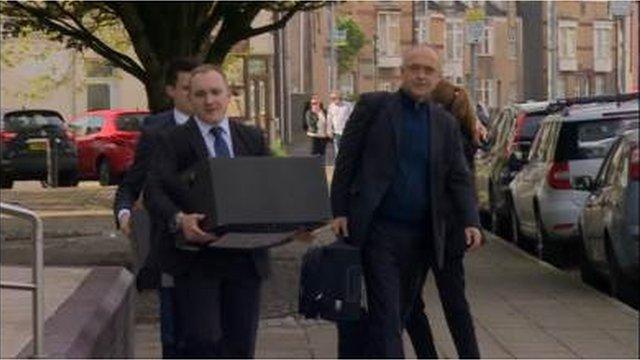
The HSE's prosecution team arrive at a hearing led by Andrew Langdon QC
Chevron, which sold the site to Valero Energy UK, after the disaster, apologised to the victims' families in court for the "dreadful loss and serious injury" that occurred.
B&A Contracts and Chevron said they had made numerous changes to prevent the same "failings" happening again.
Prashant Popat QC, for B&A Contracts, said the explosion had "ruined" the lives of the victims families and changed others "forever."
"Sorry seems to be a woefully inadequate word," he said. "But it is an important word."
- Published6 June 2019
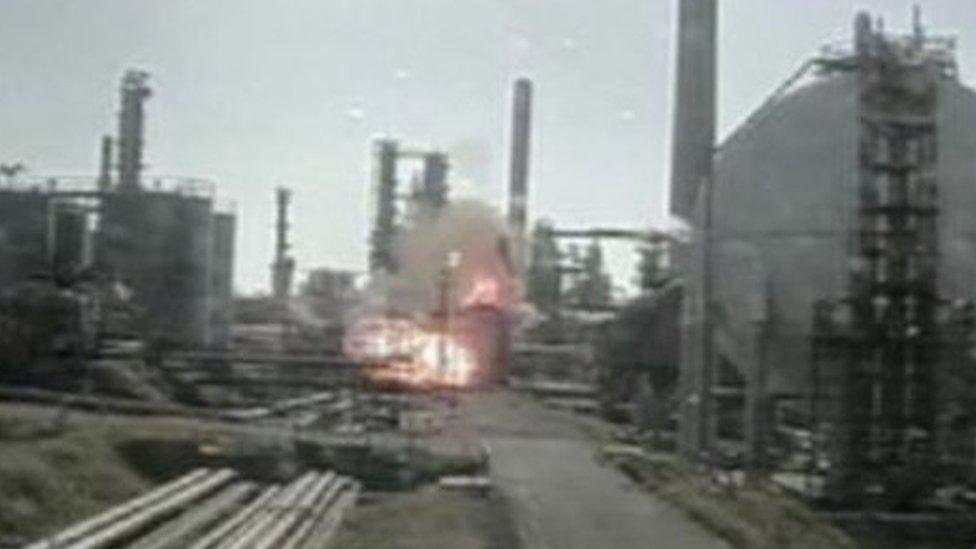
- Published1 May 2019
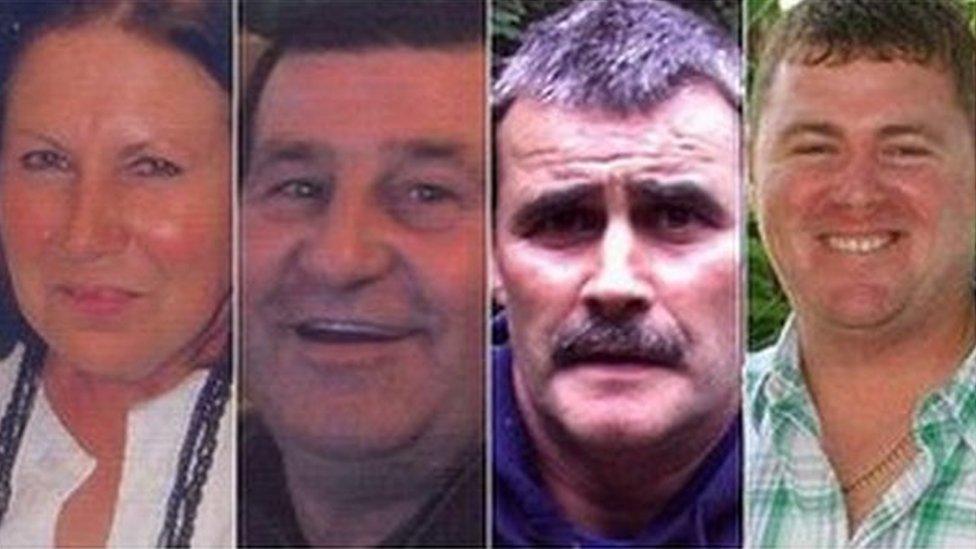
- Published3 June 2011
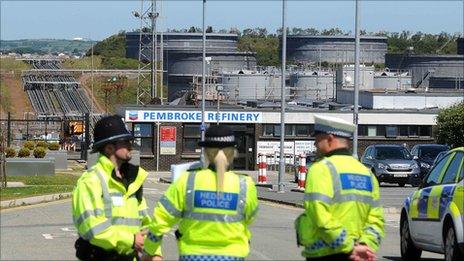
- Published24 July 2018
